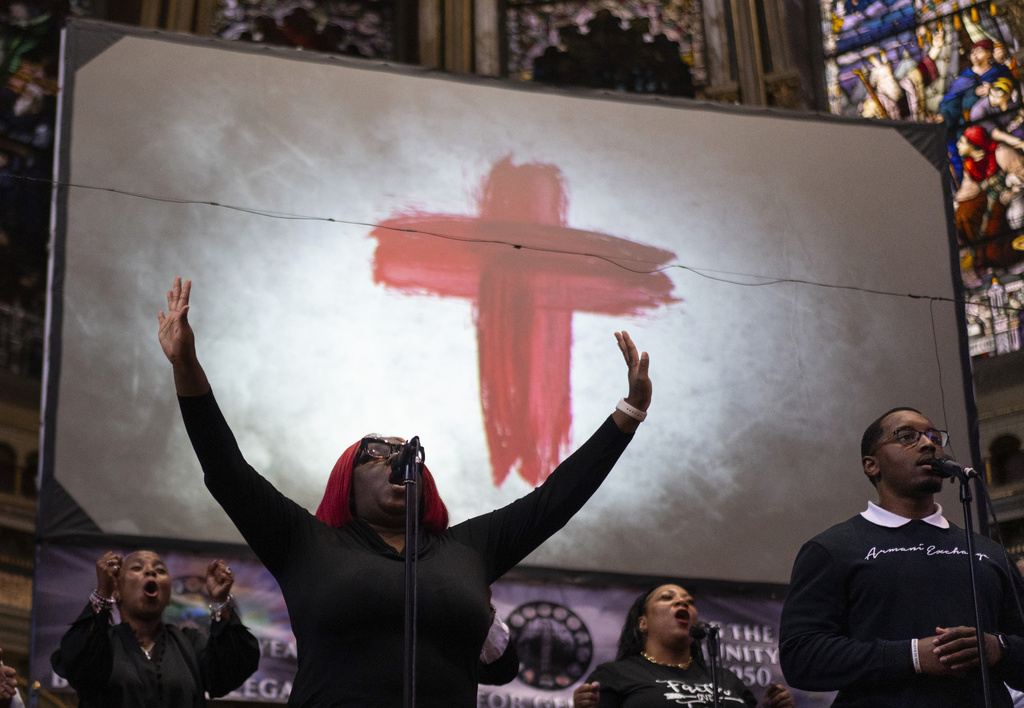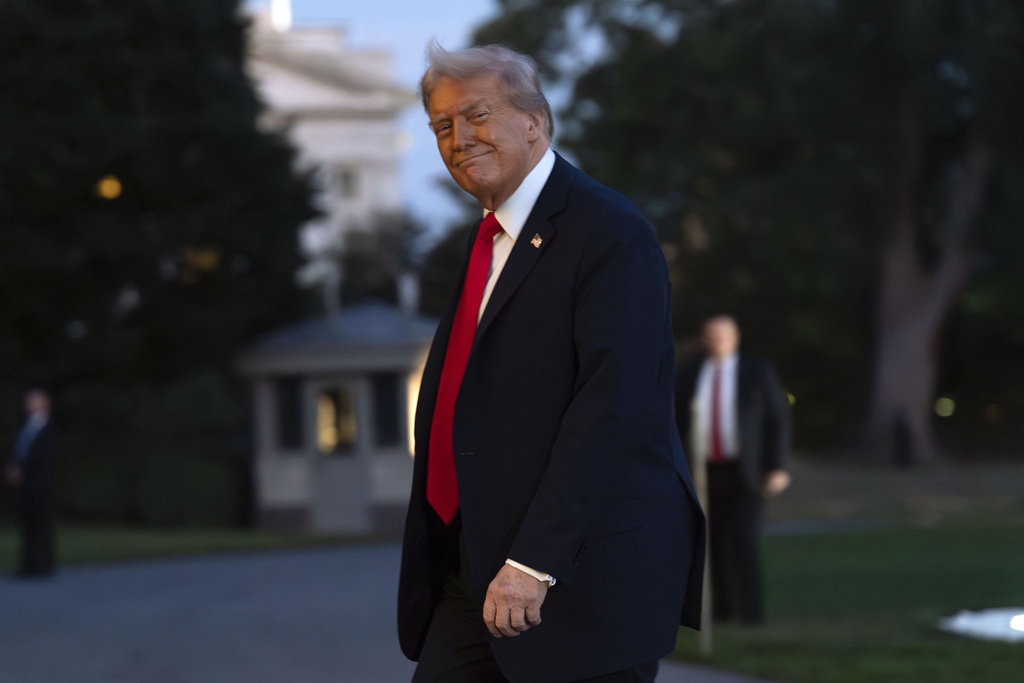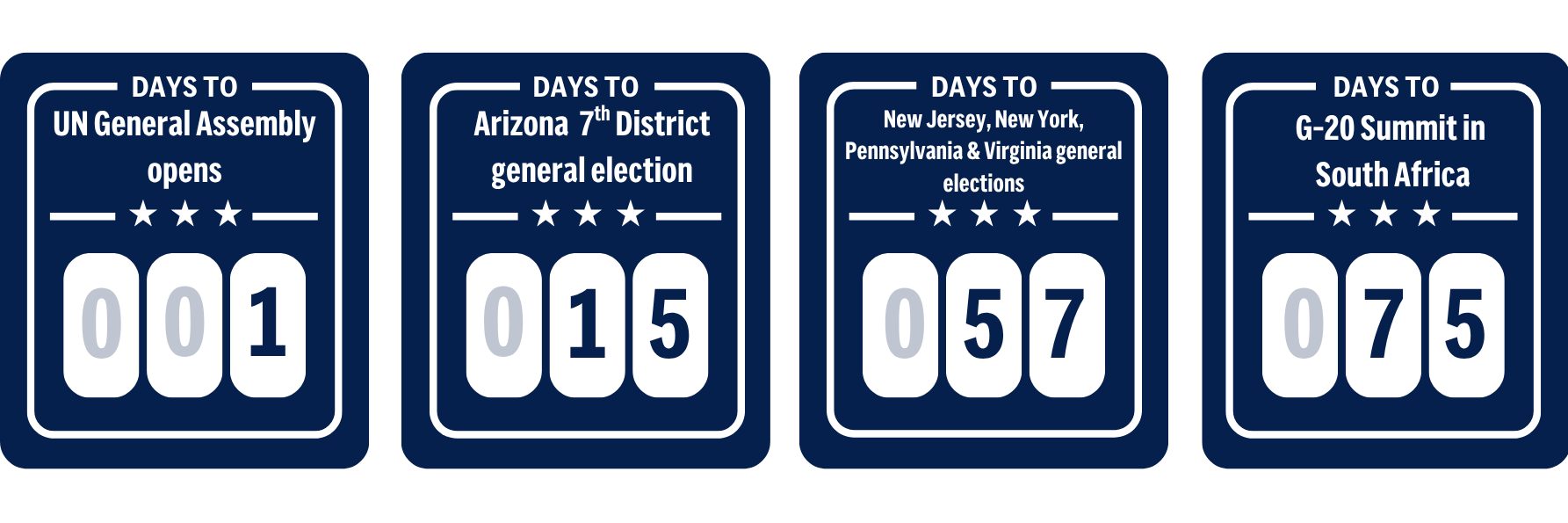| September 08, 2025 07:46:38 AM |
|
|
| September 08, 2025 07:46:38 AM |
|
|
As Chicago braced this weekend for an immigration enforcement crackdown and a possible National Guard deployment, churches across the city turned up their response from the pulpit. Some worked to quell fears about detention and deportation while others addressed the looming possibility of more law enforcement on the streets of the nation’s third-largest city.
Welcome to this week’s edition of AP Ground Game. |
Policy changes, but facts endure. AP delivers accurate, fact-based journalism to keep the world informed in every administration. Support independent reporting today. Donate. |
The New Mount Pilgrim Missionary Baptist Church choir, including Jennifer Hatch with arms raised, sings during a service Sunday, Sept. 7, 2025, in Chicago. (AP Photo/Carolyn Kaster) |
Chicago churches urge preparedness amid federal intervention fears |
President Donald Trump has threatened federal intervention in Democratic strongholds, most recently warning apocalyptic force could be used in Chicago to fight crime and step up deportations. He’s repeatedly cited the expected plans over fierce objections from local leaders and many residents who call it unnecessary and unwanted. While fears have been high in immigrant circles since Trump took office the second time, the threat of more federal agencies and troops has also inflamed tensions, particularly in Black and Latino communities where trust in police is fragile.
The Department of Homeland Security plans to use a military base north of the city and has alerted leaders of another suburb that they’ll use a federal immigration processing center there for an operation that’ll potentially last 45 days. Trump has already deployed the National Guard into Los Angeles and Washington, D.C., where he’s also federalized the police force. A federal judge has ruled the Los Angeles deployment is illegal. Read more.
|
|
|
Of note:
Details on the expected intervention have been sparse, including its focus and when it’s expected to begin. Trump’s border czar Tom Homan said Sunday on CNN’s “State of the Union” that federal law enforcement action will come to Chicago this week. He also promised more worksite enforcement operations like the massive one at a Hyundai plant in Georgia. “You can expect action in most sanctuary cities across the country,” he said.
|
|
|
What Trump's favorite phrase says about his presidency |
The United States is going to build a new missile defense system “the likes of which nobody’s ever seen before.” Trump’s aggressive use of the military in Washington has reduced crime to “numbers that we haven’t seen here ever.” And when it comes to economic growth under his leadership, “we’ve never seen anything like it.” The phrase, which Trump is using with increasing frequency, is not just a rhetorical signature. It’s also a reflection of how Trump views the world and approaches the presidency. Almost everything is black and white, with himself as the hero and his political opponents as the villains.
Liz Huston, a White House spokesperson, said “repetition is the key to any good messaging and President Trump is the greatest communicator in the history of American politics.”
It’s not hyperbole to say that Trump is deploying his trademark phrase at levels never seen before in his political career. And he’s doing it at a time when he’s less restrained — by Congress, the Supreme Court, members of his own administration and his own hesitancy — than in his first term. Read more.
|
|
|
Of note:
Trump’s loose relationship with facts is well documented, all the way back to his bestselling book “The Art of the Deal” in 1987.
“People want to believe that something is the biggest and the greatest and the most spectacular,” the book said. “I call it truthful hyperbole. It’s an innocent form of exaggeration — and it’s a very effective form of promotion.” |
|
|
Republicans welcome Trump's expansion of military on US soil |
From National Guard troops patrolling the streets of U.S. cities, to military bases and resources redirected to mass immigration enforcement operations, Trump is swiftly implementing his vision of the military as an all-powerful tool for his policy goals.
It's ground that presidents have hardly ever crossed outside of times of war, and one that experts say is remaking the role of the most powerful military in the world and its relationship with the American public.
Yet as Trump has dramatically stepped up his use of military force, Republicans in Congress — where authorization for such actions is supposed to originate — have done little but cheer him on. That's giving the president significant leeway as he raises plans to send troops next to Chicago, Baltimore and New Orleans. Read more.
|
|
|
Of note:
Republicans have in recent years found political success focusing on the issue of crime. The vast majority of Americans – 81% – see crime as a “major problem” in large cities, according to recent polling from The AP-NORC Center for Public Affairs Research. That includes nearly all Republicans, roughly three-quarters of independents and nearly 7 in 10 Democrats. However, statistics show overall crime is down across the nation, with some cities reporting 30-year lows. |
|
|
President Donald Trump walks on the South Lawn upon his arrival to the White House, in Washington, Sunday, Sept. 7, 2025. (AP Photo/Jose Luis Magana) |
- Trump speaks Monday at a Religious Liberty Commission Hearing at the Museum of the Bible in Washington.
|
|
|
|








